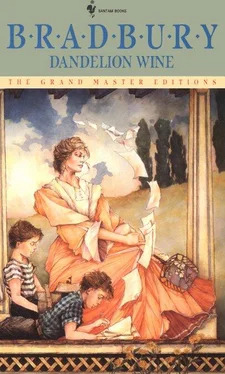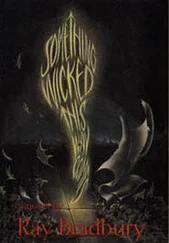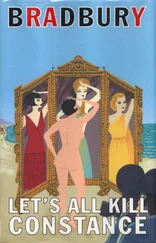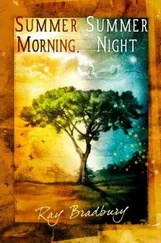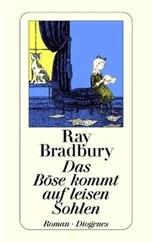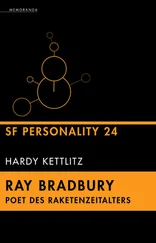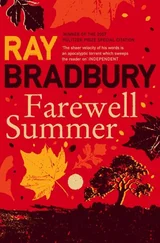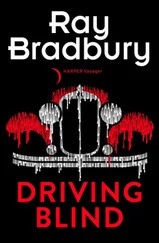Her voice sank to a soft flutter.
Douglas was crying.
She roused herself again. “Now, why are you doing that?”
“Because,” he said, “you won’t be here tomorrow.”
She turned a small hand mirror from herself to the boy. He looked at her face and himself in the mirror and then at her face again as she said, “Tomorrow morning I’ll get up at seven and wash behind my ears; I’ll run to church with Charlie Woodman; I’ll picnic at Electric Park; I’ll swim, run barefoot, fall out of trees, chew spearmint gum . . . Douglas, Douglas, for shame! You cut your fingernails, don’t you?”
“Yes ’m.”
“And you don’t yell when your body makes itself over every seven years or so, old cells dead and new ones added to your fingers and your heart. You don’t mind that, do you?”
“No ’m.”
“Well, consider then, boy. Any man saves fingernail clippings is a fool. You ever see a snake bother to keep his peeled skin? That’s about all you got here today in this bed is fingernails and snake skin. One good breath would send me up in flakes. Important thing is not the me that’s lying here, but the me that’s sitting on the edge of the bed looking back at me, and the me that’s downstairs cooking supper, or out in the garage under the car, or in the library reading. All the new parts, they count. I’m not really dying today. No person ever died that had a family. I’ll be around a long time. A thousand years from now a whole township of my offspring will be biting sour apples in the gumwood shade. That’s my answer to anyone asks big questions! Quick now, send in the rest!”
At last the entire family stood, like people seeing someone off at the rail station, waiting in the room.
“Well,” said Great-grandma, “there I am. I’m not humble, so it’s nice seeing you standing around my bed. Now next week there’s late gardening and closet-cleaning and clothes-buying for the children to do. And since that part of me which is called, for convenience, Great-grandma, won’t be here to step it along, those other parts of me called Uncle Bert and Leo and Tom and Douglas, and all the other names, will have to take over, each to his own.”
“Yes, Grandma.”
“I don’t want any Halloween parties here tomorrow. Don’t want anyone saying anything sweet about me; I said it all in my time and my pride. I’ve tasted every victual and danced every dance; now there’s one last tart I haven’t bit on, one tune I haven’t whistled. But I’m not afraid. I’m truly curious. Death won’t get a crumb by my mouth I won’t keep and savor. So don’t you worry over me. Now, all of you go, and let me find my sleep . . .”
Somewhere a door closed quietly.
“That’s better.” Alone she snuggled luxuriously down through the warm snowbank of linen and wool, sheet and cover, and the colors of the patchwork quilt were bright as the circus banners of old time. Lying there, she felt as small and secret as on those mornings eighty-some-odd years ago when, wakening, she comforted her tender bones in bed.
A long time back, she thought, I dreamed a dream, and was enjoying it so much when someone wakened me, and that was the day when I was born. And now? Now, let me see . . .She cast her mind back. Where was I? she thought. Ninety years . . .how to take up the thread and the pattern of that lost dream again? She put out a small hand. There . . .Yes, that was it. She smiled. Deeper in the warm snow hill she turned her head upon her pillow. That was better. Now, yes, now she saw it shaping in her mind quietly, and with a serenity like a sea moving along an endless and self-refreshing shore. Now she let the old dream touch and lift her from the snow and drift her above the scarce-remembered bed.
Downstairs, she thought, they are polishing the silver, and rummaging the cellar, and dusting in the halls. She could hear them living all through the house.
“It’s all right,” whispered Great-grandma, as the dream floated her. “Like everything else in this life, it’s fitting.”
And the sea moved her back down the shore.
“A ghost!” Cried Tom
“No,” said a voice. “Just me.”
The ghastly light flowed into the dark apple-scented bedroom. A quart-size Mason jar, seemingly suspended upon space, flickered many twilight-colored flakes of light on and off. In this pallid illumination Douglas’s eyes shone pale and solemn. He was so tan his face and hands were dissolved in darkness and his nightgown seemed a disembodied spirit.
“My gosh!” hissed Tom. “Two dozen, three dozen fireflies!”
“Shh, for cry-yi!”
“What you got ’em for?”
“We got caught reading nights with flashlights under our sheets, right? So, nobody’ll suspect an old jar of fireflies; folks’ll think it’s just a night museum.”
“Doug, you’re a genius!”
But Doug did not answer. Very gravely he placed the intermittently signaling light source upon the night table and picked up his pencil and began to write large and long on his tablet. With the fireflies burning, dying, burning, dying, and his eyes glinting with three dozen fugitive bits of pale green color, he block printed for ten and then twenty minutes, aligning and realigning, writing and rewriting the facts that he had gathered all too swiftly during the season. Tom watched, hypnotized by the small bonfire of insects leaping and furling within the jar, until he froze, sleeping, raised on elbow, while Douglas wrote on. He summed it all up on a final page:
YOU CAN’T DEPEND ON THINGS BECAUSE . . .
… like machines, for instance, they fall apart or rust or rot, or maybe never get finished at all … or wind up in garages …
… like tennis shoes, you can only run so far, so fast, and then the earth’s got you again . . .
… like trolleys. Trolleys, big as they are, always
come to the end of the line …
YOU CAN’T DEPEND ON PEOPLE BECAUSE . . .
… they go away … strangers die … people you know fairly well die … friends die … people murder people, like in books … your own folks can die.
So … !
He held onto a double fistful of breath, let it hiss out slow, grabbed more breath, and let it whisper through his tight-gritted teeth.
SO. He finished in huge heavily blocked capitals.
SO IF TROLLEYS AND RUNABOUTS AND FRIENDS AND NEAR FRIENDS CAN GO AWAY FOR A WHILE OR GO AWAY FOREVER, OR RUST, OR FALL APART OR DIE, AND IF PEOPLE CAN BE MURDERED, AND IF SOMEONE LIKE GREAT—
GRANDMA, WHO WAS GOING TO LIVE FOREVER, CAN DIE . . .IF ALL OF THIS IS TRUE . . . THEN . . . I, DOUGLAS SPAULDING, SOME DAY . . . MUST . . .
But the fireflies, as if extinguished by his somber thoughts, had softly turned themselves off.
I can’t write any more, anyway, thought Douglas. I won’t write any more. I won’t, I won’t finish it tonight.
He looked over at Tom asleep on his upraised elbow and hand. He touched Tom’s wrist and Tom collapsed into a sighing ruin, back upon the bed.
Douglas picked up the Mason jar with the cold dark lumps in it and the cool lights flicked on again, as if given life by his hand. He lifted the Mason jar to where it shone fitfully on his summing-up. The final words waited to be written. But he went instead to the window and pushed the screen frame out. He unscrewed the top of the jar and tilted the fireflies in a pale shower of sparks down the windless night. They found their wings and flew away.
Douglas watched them go. They departed like the pale fragments of a final twilight in the history of a dying world. They went like the few remaining shreds of warm hope from his hand. They left his face and his body and the space inside his body to darkness. They left him empty as the Mason jar which now, without knowing that he did so, he took back into bed with him, when he tried to sleep . . .
Читать дальше
